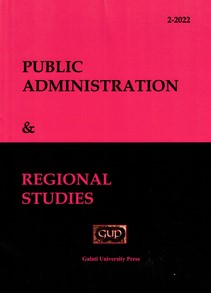ECOCIDE AND ENVIRONMENTAL POLICIES
ECOCIDE AND ENVIRONMENTAL POLICIES
Author(s): Mihaela-Corina BucurSubject(s): Environmental and Energy policy, Criminology, Human Ecology, Political Ecology, EU-Legislation
Published by: Editura Universității „Dunărea de Jos”, Galați
Keywords: ecological crime; environmental crime; environmental policies; environmental action programs; environmental policy instruments;
Summary/Abstract: Ecocide (ecological crime) represents a type of hidden crime, the facts discovered, reported, administratively or criminally investigated and punished by the authorities being few in number, and the sanctions being insignificant, although environmental crimes occupy the fourth place in international illegal activities, being outranked only by drug trafficking, counterfeiting of money and art objects and human trafficking and registering a constant growth of 5-7% per year. These have become some of the most profitable organized crime activities worldwide, significantly affecting both the environment and human health. Environmental policy represents the totality of environmental objectives and priorities, regulatory methods and their implementation tools, designed to ensure the sustainable use of natural resources, prevention, reduction or mitigation of environmental quality degradation. The documents that form the basis of the European Union’s environmental policy are the Environmental Action Programs. So far, eight Environmental Action Programs have been developed, the eighth one being adopted in 2022 and will be the basis of environmental policies until 2030. Environmental policy instruments are basic mechanisms at the disposal of democratic governments, supranational structures, through which the attitude and behavior of the population and economic agents can be influenced in the direction favorable to achieving the objectives and the set goals. Three types of instruments have been developed: legislative, technical and economic-financial, to which is added a set of “helping instruments” that respond to new trends and environmental protection strategies. Romania adopted for the first time the “National Strategy on Education for the Environment and Climate Change 2023 - 2030”, which proposes an education that promotes a sustainable lifestyle, through the development of eco-social skills, taking into account the familiarization of young people with the natural and socioeconomic problems caused by of climate change, but also with ways to improve the response to it.
Journal: Public Administration & Regional Studies
- Issue Year: 16/2023
- Issue No: 1
- Page Range: 13-23
- Page Count: 11
- Language: English

